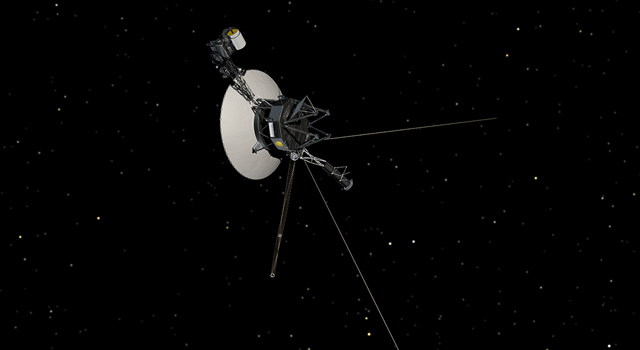News | December 4, 1979
Voyager 1 Light-Sensing Instrument Non-operational

Project officials report light-sensing instrument aboard NASA's Voyager 1, that had difficulty during encounter with the planet Jupiter March 5th, has been confirmed as no longer being able to record useful data.
Tests conducted last week indicate that the light sensitivity of the instrument, called photopolarimeter, has almost reached zero. The photopolarimetry is one of eleven science experiments conducted by the Voyager spacecraft and is designed to detect surface and atmospheric chemicals on Jupiter and Saturn and their moons.
Data was received from an identical instrument aboard Voyager 2 during its flyby of Jupiter last July 9.
The two Voyagers, which were launched in the summer of 1977, sent to Earth thousands of brilliant TV photos and made major new discoveries about Jupiter and its four large moons.
Both spacecraft are operating normally in their cruise to Saturn. Voyager 1 will reach Saturn next November 12 and Voyager 2, on August 25, 1981.
